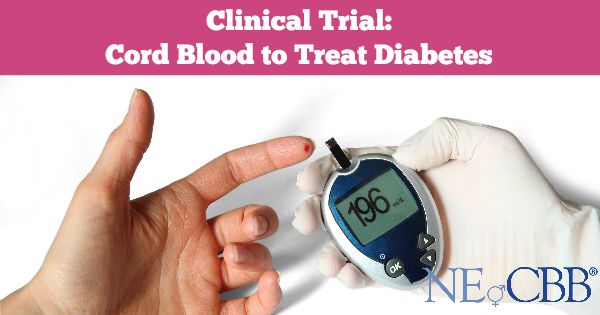 Cord blood stem cells have been used for more than twenty years as a powerful medical resource in fighting devastating chronic and acute diseases. Ongoing clinical trials provide hope that these stem cells will one day change the lives of many more people. Diabetes research is one such area of particular interest.
Cord blood stem cells have been used for more than twenty years as a powerful medical resource in fighting devastating chronic and acute diseases. Ongoing clinical trials provide hope that these stem cells will one day change the lives of many more people. Diabetes research is one such area of particular interest.
About Diabetes
According to the Diabetes Research Institute, diabetes currently afflicts more than 380 million people around the world. For these people, the system in their body that allows them to use energy from the food they eat doesn’t work properly. The pancreas does not produce insulin, or when the pancreas does produce insulin, it is resisted by the body.
Immune System
Clinical trials exploring cord blood stem cell therapies for diabetes have primarily focused on type 1 diabetes. With type 1 diabetes, the body’s immune system attacks part of its own pancreas. The immune system mistakenly sees the insulin-producing cells in the pancreas as foreign and destroys them. This creates an autoimmune response in the body. Patients manage type 1 diabetes through daily insulin injections, blood sugar monitoring, and lifestyle changes. There is currently no actual treatment for the disease and it is most often diagnosed in children and young adults.
Stem Cell Educator Therapy
One active type 1 diabetes clinical trial is stem cell educator therapy. This exciting technique explores the possibility to train the autologous stem cells not to have its autoimmune effects. According to the study, “Human cord blood contains several types of stem cells such as the umbilical cord blood-derived multipotent stem cells (CB-SC). Specifically, CB-SC can function as an immune modulator that can lead to control of the immune responses, which could in turn be used as a new approach to overcome the autoimmunity of type 1 diabetes (T1D) in patients.”
This means that someone may be able to use their own cells from cord blood that was collected and stored at birth, to reverse the autoimmune effects of their type 1 diabetes.
Ongoing Research
The other main avenue actively being researched for diabetes is the use of umbilical cord tissue stem cells called Mesenchymal stem cells (MSC). As these cord tissue stem cells have amazing properties to help modulate and control the immune system, they make an ideal candidate for all types of autoimmune diseases, including type 1 diabetes. The potential for stem cell therapy to treat one of the most common afflictions in the world, as well as other autoimmune diseases, may one day help millions of people worldwide.
Learn more – subscribe to our email newsletter or connect with us on Facebook.